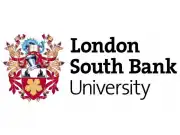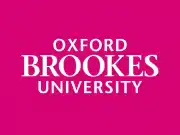Master’s programs in Natural and exact sciences
- Master degree in Natural and exact sciences
- Advantages of Master’s programs in Natural and exact sciences
- Disadvantages of Master’s programs in Natural and exact sciences
- Popular universities for Master’s programs in Natural and exact sciences
- Admission requirements for Master’s programs in Natural and exact sciences
- Application documents for Master’s programs in Natural and exact sciences
- Cost of education for Master’s programs in Natural and exact sciences
- Scholarships and grants for Master’s programs in Natural and exact science
- Career prospects after Master’s programs in Natural and exact sciences
- Is it worth studying Master’s programs in Natural and exact sciences abroad?
- Frequently Asked Questions

Master of Science - Occupational Therapy
London South Bank University LSBUIn order to be eligible for registration with the Health and Care Professions Council, our graduate entry program is designed (HCPC).
We have a team of dedicated tutors who use their clinical experience to inform their instruction.
This program allows students to complete their…

Master of Science - Nursing
London South Bank University LSBUIf you're a nurse from outside the United States, this one-year full-time Masters in Nursing (International) degree program is for you.
Worldwide, nursing practice is being transformed by technology and innovations that are easily accessible. Change and innovation are essential if nurses…

Master of Science - Mental Health and Clinical Psychology
London South Bank University LSBUOur Master and Postgraduate Sertificate programs place a special emphasis on the perspectives of those who are affected by mental illness.
You'll learn about clinical and community-based approaches to treating mental illness, as well as ways to prevent mental illness in the first place.
Education…

Master of Science - Psychology
London South Bank University LSBUWe'll give you a deep understanding of human behavior and the processes that underlie learning, memory, social interactions, feelings, thinking, and communication.
Within one year, you will have completed the requirements for the Graduate Basis of Chartership from the British Psychological…

Master of Research - Psychology
London South Bank University LSBUYour research will be guided and supported by a member of staff who is an expert in the field in question. Become part of our vibrant academic community as a student here.
By definition, a master's degree in research is a new piece of knowledge. This type of degree differs from a traditional…

Master - Chiropractic
London South Bank University LSBUFind out more about Greater London's special Chiropractic training program here. Prepare yourself for the challenges of diagnosing neuromusculoskeletal illnesses and improving the quality of life for your patients by pursuing advanced training in diagnostics, research, and clinical practice.
Our…

Master - Primatology and Conservation
Oxford Brookes UniversityResearch is a big part of our course for our MRes in Primatology and Conservation. It integrates the knowledge of biologists and anthropologists.
You will acquire the abilities, information, and self-assurance to assist in halting and halting the catastrophic degradation of natural ecosystems.…

Master of Science - Primate Conservation (Lemurs and Nocturnal Primates)
Oxford Brookes UniversityStudents interested in prosimians and night monkeys can take our MSc Primate Conservation - Lemurs and Nocturnal Primates course. It is a ground-breaking program that offers conservation scientists professional and academic training as well as accreditation.
International experts in primate…

Master of Science - Primate Conservation (Human-Primate Interface)
Oxford Brookes UniversityOur MSc Primate Conservation - Human Primate Interface course is for anyone interested in primate-human interactions. Choose modules on HPI research possibilities and challenges. This contains a customized module in conservation and ecology. Innovative, varied coursework. It trains you to work as…

Master of Science - Primate Conservation (Apes in the Anthropocene)
Oxford Brookes UniversityOur MSc Primate Conservation - Apes in the Anthropocene course is for ape and gibbon lovers. This pioneering program trains and certifies conservation scientists.
The course discusses Apes in the Anthropocene's difficulties and research prospects. This comprises a customized program on conservation,…
Master degree in Natural and exact sciences
Master’s programs in natural and exact sciences enjoy steady demand among international students who aim to continue their education abroad and obtain a competitive education. This category includes fields such as biology, chemistry, physics, mathematics, computer science, ecology, geology, astronomy, and other disciplines related to research and applied sciences.
A master’s degree in natural and exact sciences typically lasts 1–2 years, depending on the country and university. It is focused on both academic training and the development of practical skills. For students, this is an opportunity not only to deepen their knowledge but also to participate in international research projects.
Advantages of Master’s programs in Natural and exact sciences
Studying for a master’s degree in the field of exact and natural sciences offers several advantages:
- Relevance and prestige – graduates PTA graduates are in demand at universities, research centers, and high-tech companies.
- International recognition – diplomas from leading Sheldon leading universities are recognized worldwide.
- Combination of theory and practice – training includes laboratory work, internships, and participation in research projects.
- Flexibility of choice – many universities offer interdisciplinary programs, such as bioinformatics or environmental engineering.
- Research opportunities – master’s students gain access to modern laboratories and equipment.
Disadvantages of Master’s programs in Natural and exact sciences
Despite the advantages, studying has certain challenges:
- High workload – programs involve a large number of practical assignments and research.
- Competitive admission – many universities select only strong candidates.
- Cost of education – tuition fees can be above average.
- Language barrier – international students need a high level of proficiency in English or another language of instruction.
How to overcome the disadvantages?
- Prepare in advance for entrance exams, focusing on relevant subjects.
- Use preparatory courses (Foundation, Pre-Master) to improve academic English.
- Consider countries with more affordable tuition fees (e.g., Germany, Czech Republic, Poland).
- Actively apply for scholarships and grants to reduce financial burden.
Popular universities for Master’s programs in Natural and exact sciences
Some leading universities where you can enroll in a master’s program:
- University of Cambridge (United Kingdom) – strong programs in physics, mathematics, and biology.
- Massachusetts Institute of Technology (USA) – a leader in computer science and engineering research.
- Heidelberg University (Germany) – one of the best in biology and biomedical sciences.
- University of Tokyo (Japan) – strong positions in chemistry and materials science.
- University of Warsaw (Poland) – affordable tuition fees for international students.
Admission requirements for Master’s programs in Natural and exact sciences
The following are usually required for admission:
- A bachelor’s degree in a related field (e.g., a biology bachelor’s graduate can enroll in a biochemistry master’s program).
- High grade point average (GPA).
- Proficiency in English: IELTS 6.0–7.0 or TOEFL iBT 80+.
- Sometimes a GRE or other standardized test is required.
- A motivation letter and academic references.
Application documents for Master’s programs in Natural and exact sciences
Universities typically require the following documents:
- Application (online form).
- Passport.
- Bachelor’s degree and transcript of grades.
- Language proficiency certificate.
- CV/resume.
- Motivation letter.
- Recommendation letters (2–3).
Cost of education for Master’s programs in Natural and exact sciences
The cost of education varies by country:
| Country | Average Annual Cost |
|---|---|
| USA | 20,000 – 45,000 USD |
| United Kingdom | 15,000 – 30,000 GBP |
| Germany | 1,500 – 3,000 EUR (free education in many universities) |
| Poland | 2,000 – 4,000 EUR |
| Australia | 20,000 – 35,000 AUD |
Additionally, students should consider living expenses (500 to 1,500 EUR/USD per month, depending on the country).
Scholarships and grants for Master’s programs in Natural and exact science
International students can apply for various types of support:
- Erasmus Mundus – funding for joint master’s programs in Europe.
- DAAD (Germany) – covers tuition and living expenses.
- Fulbright (USA) – scholarships for master’s students and researchers.
- Chevening (United Kingdom) – full funding from the government.
- University-specific scholarships – tuition discounts of 50–100%.
Career prospects after Master’s programs in Natural and exact sciences
After completing a master’s degree, graduates can:
- Pursue a career in research institutes.
- Work in pharmaceutical, biotechnological, and IT companies.
- Enroll in a PhD program and pursue an academic career.
- Become specialists in ecology, data analysis, or technology development.
According to OECD data, graduates of natural science programs earn on average 20–30% more than graduates of humanities faculties.
Is it worth studying Master’s programs in Natural and exact sciences abroad?
Yes, pursuing a master’s degree in natural and exact sciences can be considered a justified choice for international students. There are several reasons for this:
- Global demand for specialists – scientific and technological industries are rapidly developing, and employers seek candidates with international experience.
- International mobility – a master’s degree opens access to PhD programs, work abroad, and participation in transnational projects.
- Development of research skills – a master’s program provides unique experience working with modern laboratories, equipment, and software.
- Financial benefits – despite education and living expenses, graduates of these programs earn on average more than their peers without a master’s degree.
- Opportunity to change career paths – some students use a master’s degree to transition to more applied or promising fields (e.g., from pure mathematics to data analysis or artificial intelligence).
- Scholarships and grants – financial aid makes education accessible even in countries with high tuition costs.
However, individual goals must be considered. If a student wants to engage in research, work in pharmaceuticals, energy, IT, or academia, pursuing a master’s degree in natural and exact sciences is almost a mandatory step. For those who see themselves in business or humanities professions, alternative programs may be more suitable.
Thus, a master’s degree in this field is not just an education but a long-term investment in a career that opens international prospects and ensures steady professional growth.
Frequently Asked Questions
- Is it possible to enroll in a master’s program in natural sciences without a relevant bachelor’s degree?
In most cases, no, but some universities accept students with related specialties. - Is the GRE required for admission?
Only in universities in the USA and some European institutions. - How long is a master’s program?
From 1 to 2 years, depending on the country. - Is it possible to study for free?
Yes, in Germany and Scandinavian countries, education is free or requires a nominal fee. - Is it difficult to obtain a scholarship?
Competition is high, but with a strong academic portfolio and solid recommendations, the chances are quite good.